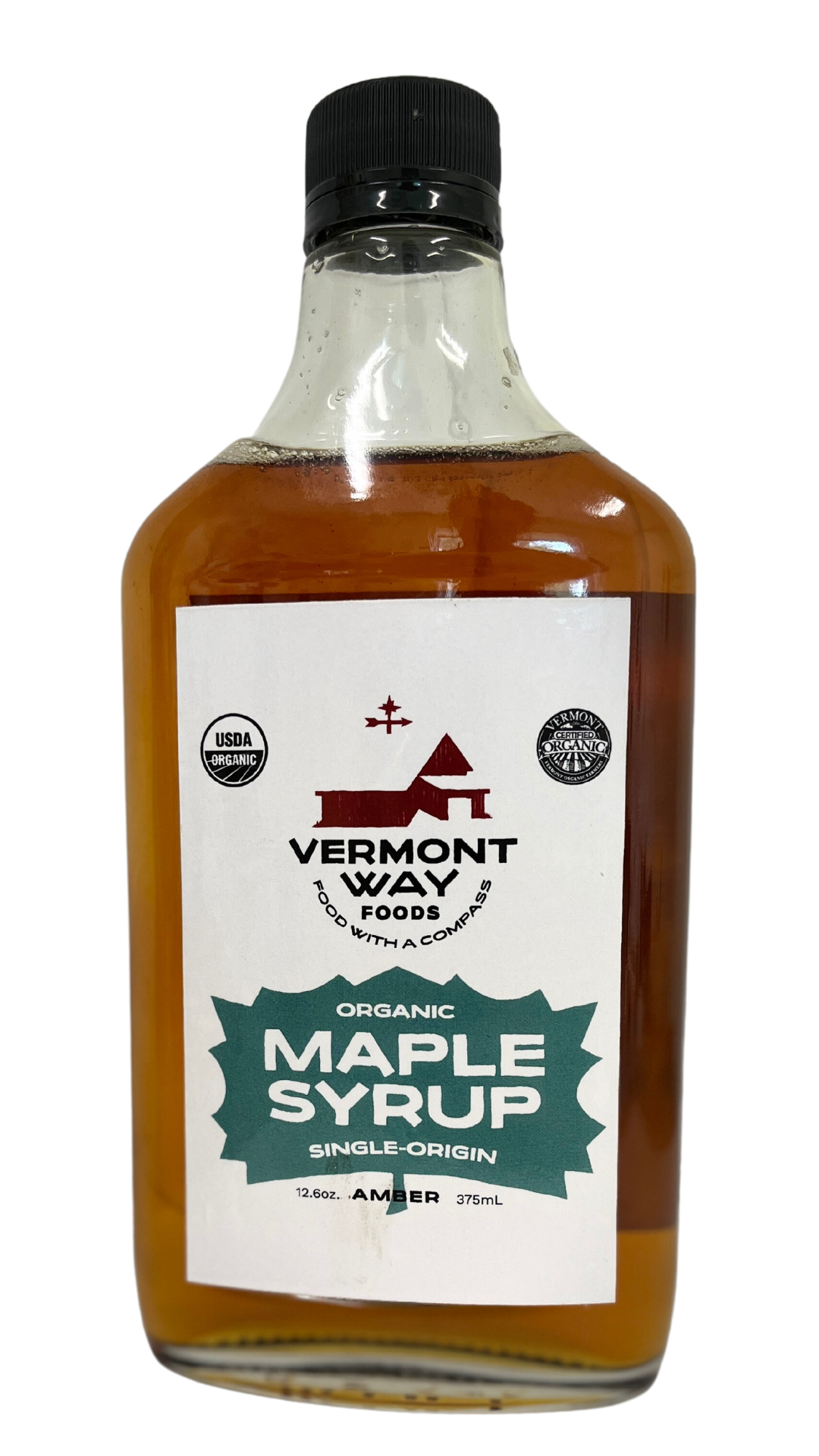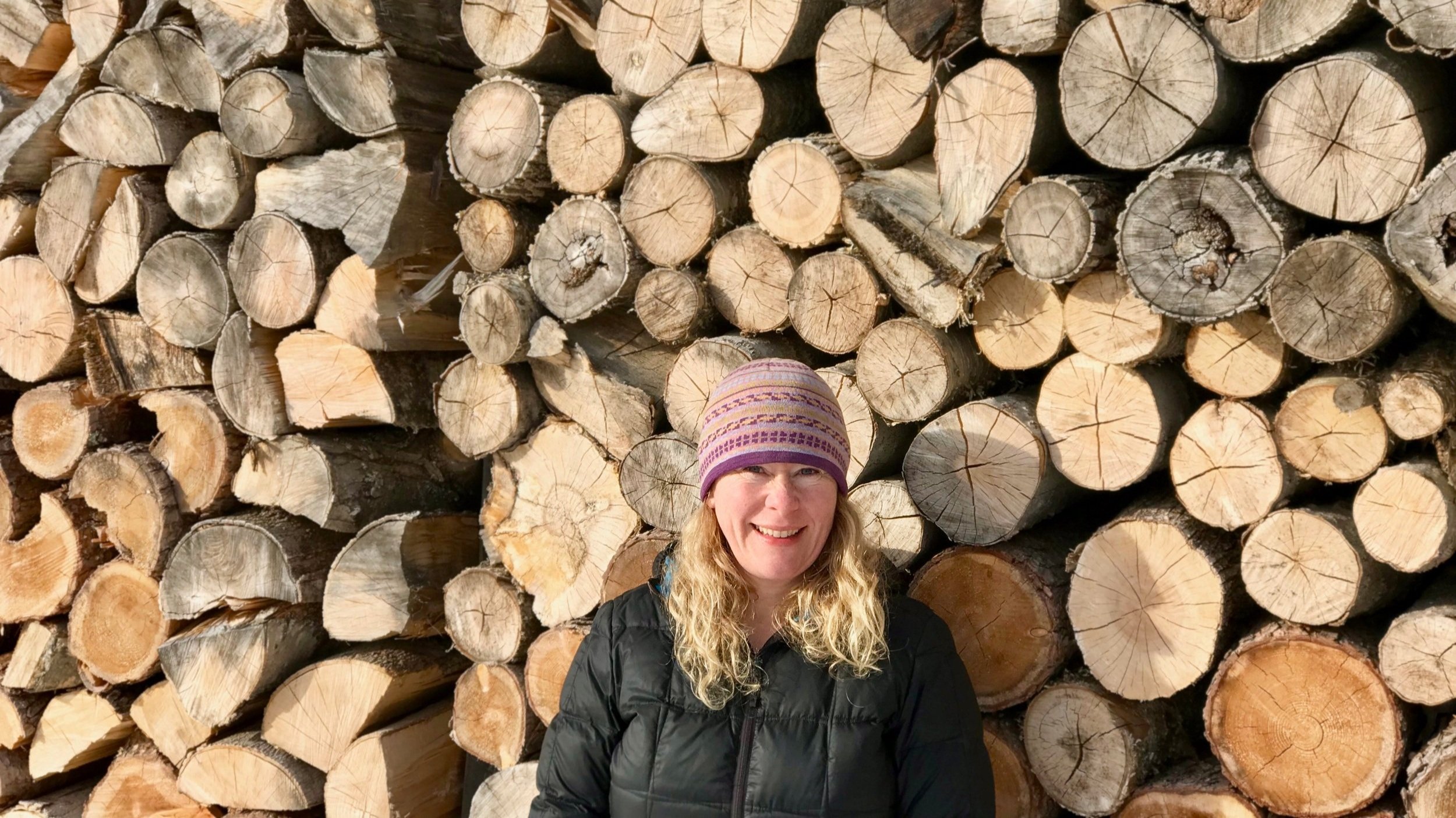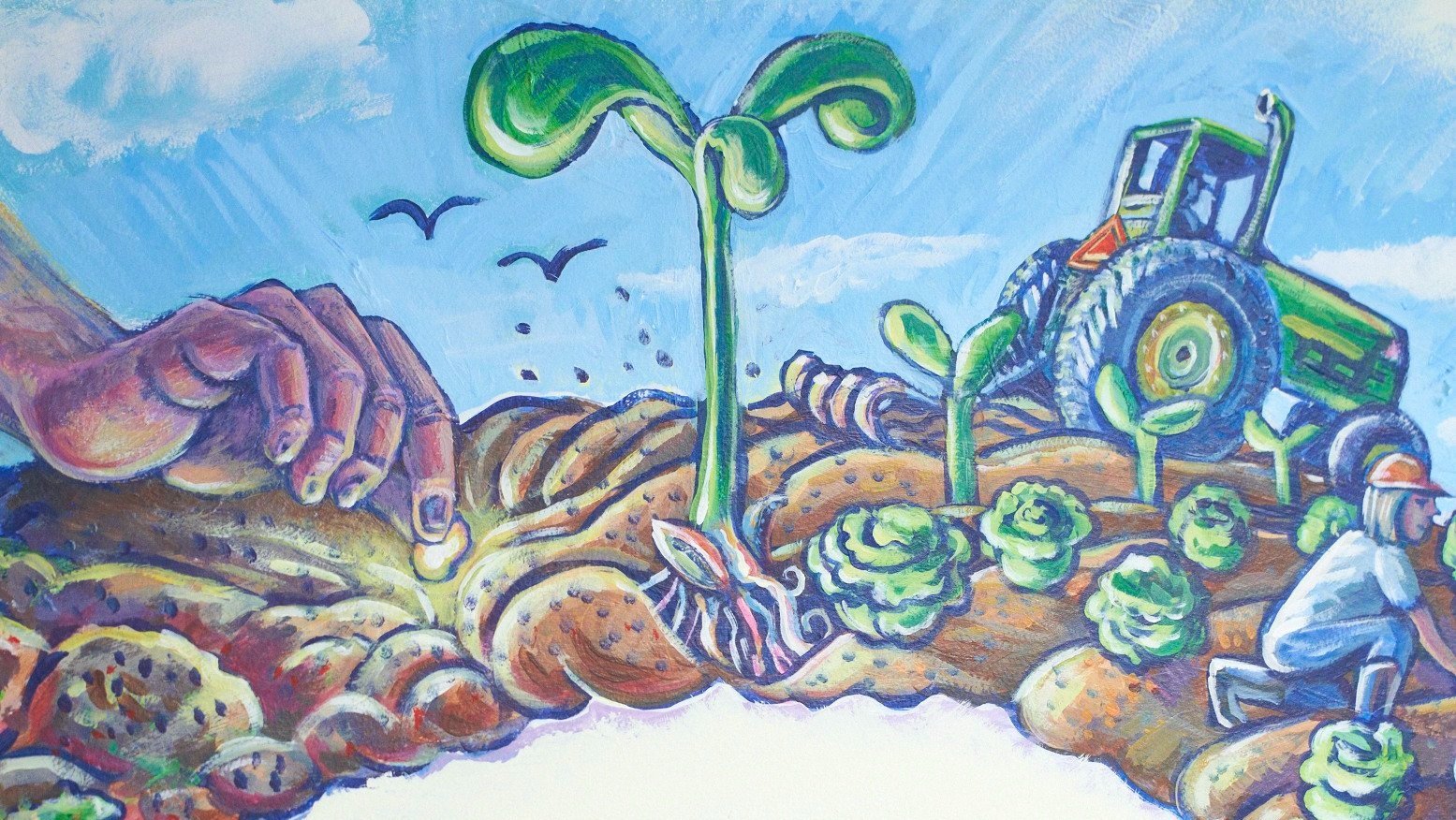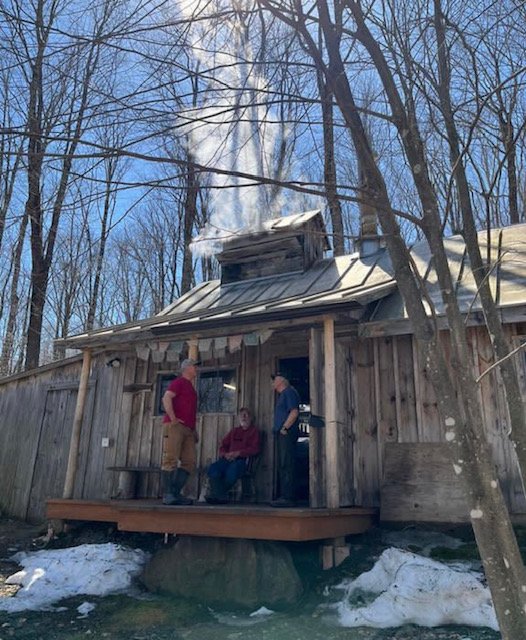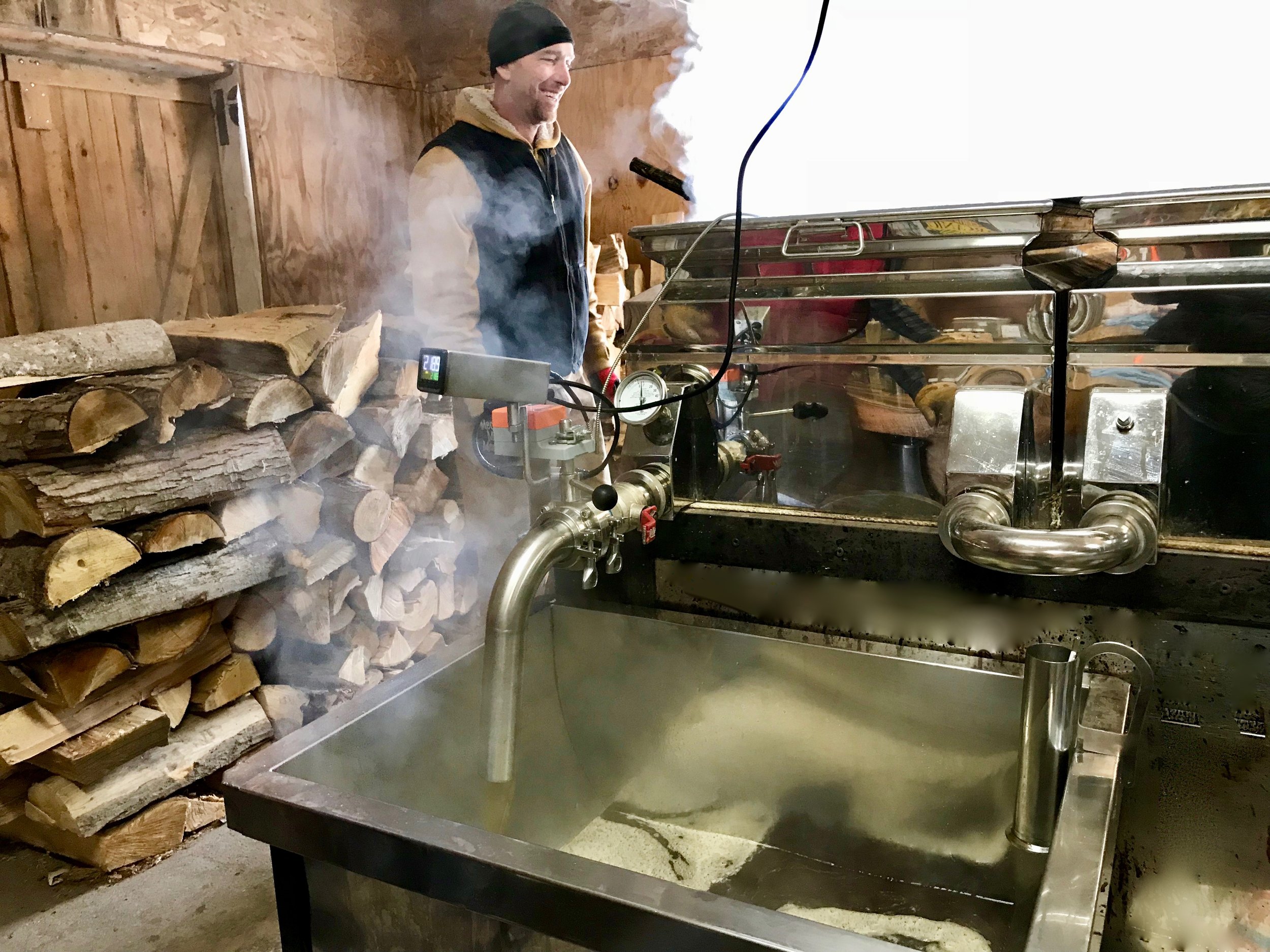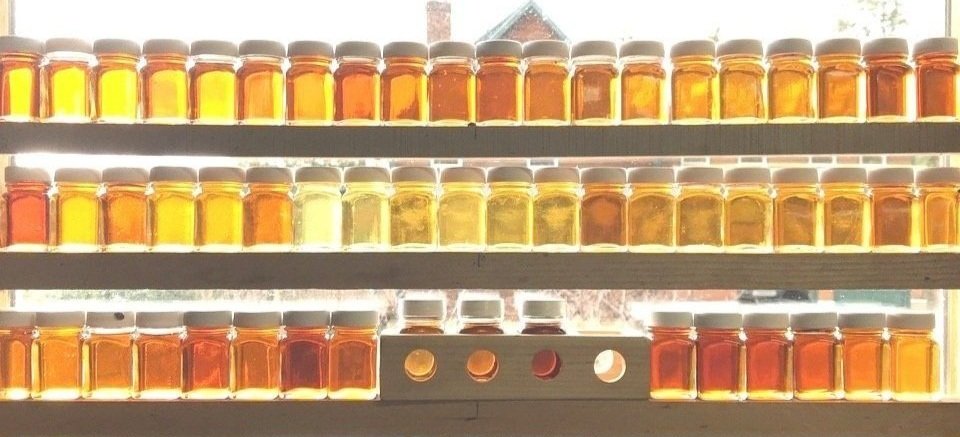
Maple Syrup
Vermont Way Foods organic maple syrup is tapped and boiled on organic, owner-operated Vermont farms and bottled by our partners at the Center for an Agricultural Economy (CAE).
These farms have chosen to remain under 10,000 taps, meaning much of their syrup is sold on the wholesale market to larger companies that blend syrup from many farms when bottling. We can offer our farmers a rate slightly above the wholesale rate and the opportunity to showcase their unique product.
The Maple Farms
Judd's Wayeeses Farms
Jim Judd and Donna Young have a combined 80 years of sugaring experience on their land, known as Wayeeses Farm, near Lake Seymour, Vermont. Unlike many producers who tap maple trees in different locations on their property, Jim and Donna have chosen to utilize only 3,000 taps on 45 contiguous acres on a unique geological and historical site. Wayeeses Farm was a boy’s camp in the pre-World War II era, and extant camp buildings remain in the area. Camp advertising materials describe it as a “320 acres of timberland . . . nestled between Mount Elon and Seymour Lake”. The unique soil profile created by the intersection of Seymour Lake, which has low nutrient levels, and the nutrient dense snow run off from the mountain provides their syrup with an unmatched “single terroir” taste profile.
Although Jim is the fourth generation of his family to produce syrup in Morgan, Vermont, he did not initially follow in the family footsteps. As a young man, he was a commercial fisherman in Alaska.
Upon seeing his first tax bill, he realized that he needed to pursue some less lucrative avenues as well. When his father heard this he advised that if Jim wanted to lose money, he should try sugaring instead of fishing! Jim heeded this advice and split time between Alaska and Vermont, fishing and sugaring, for the next 7 years. When he met Donna and introduced her to syrup making, she was hooked. A passionate forager and gatherer, she realized that syrup making was “gathering on another level”- or PFM (pure frigging magic), as Jim says.
While sugaring may not be as profitable as fishing, Jim and Donna are passionate about their land and their product. Along with syrup, they also produce maple sugar and distribute it within a 100-mile radius. Their focus is on making their operation more efficient so that they can continue to tap trees and make syrup on the land they clearly love.
Buck Mountain Maple
Buck Mountain Maple has been producing high quality maple syrup since 2000. After a 5 year search for the right piece of land, in 1999 Matt Gedeon purchased Buck Mountain, in northern Vermont.
His passion for the land and his background in natural resource management combined with his diverse farming and sugar-making experience, led to his vision to build a long-term sustainable business based on Maple.
Matt and his wife Gwyneth Flack began mapping out, designing and building the 300+ acre Buck Mountain Maple sugaring operation.
“The key to purely delicious Buck Mountain Maple Syrup is in the stewarding, location and management of the Sugarbush. Preserving the mountain’s nutrient rich soil supports the growth of healthy Maple trees, producing high-quality organic sap. The high heat generated by the wood fired arch then caramelizes the sap creating exceptional flavor characteristics. Syrup is truly a gift from the trees and a precious commodity.”
– Matt and Gwyneth
Maple Mountain Sugarhouse
For more than 30 years, Lyman Gilman has painstakingly refined his labor of love: creating delicious, organic Vermont maple syrup. As Lyman describes it, he “caught the bug” quickly after creating the first batch of Maple Mountain syrup back in 1991, and the prolific sugarmaker never looked back. Now, Maple Mountain Sugarhouse is proud to offer our hand-crafted, always wood-fired, maple syrup to a wider audience around the country. Whether it’s your first time trying “the real thing,” or you’ve had your share of Vermont syrups in the past, you are sure to love the 100% organic maple syrup that they create in their magical corner of Vermont’s Northeast Kingdom. Shop our products, and order yours today!
Kingdom Maple
In Northern Vermont, community is everything, and nobody is more deeply embedded in their community than Kingdom Maple. Kingdom Maple was started over 40 years ago by longtime Albany residents Jim and Sue Richardson. It's run today by two families–working alongside Jim and Sue are new partners Adam Crafts and Jessica McNally. In 2020, the Richardsons decided they wanted to begin the transition out of the business. When they were ready to sell the business. Adam and Jessica reached an agreement to begin a phased purchase of the business, with Jim and Sue continuing to provide guidance and mentorship. Adam and Jessica hope to be sole owners of the maple business someday soon but value the relationship and partnership with the Richarsons in the meantime.
Adam and Jessica–also no strangers to the Northeast Kingdom–live just down the road from the sugaring operation in Albany. Adam brings his logging and forest management experience to the work, but he and Jess also raise cows, sheep, chickens and pigs. They continue to grow the maple farm, leasing two other properties with a combined 4500 taps. They manage the farm with the help of their kids including their 16-year-old Parsons They hope to produce maple candies, maple cream, and baked goods in the future, while also continuing to grow their other farm enterprises.
The Partners
Center for an Agricultural Economy
CAE is a food systems hub in Hardwick, VT whose reach extends statewide and beyond. Our work touches all aspects of the food system in support of rural food businesses, farms, and communities. We work alongside our neighbors and partners to cultivate interdependence, take risks, and initiate change. CAE operates a full-service food hub at the Vermont Food Venture Center, and business advising and technical assistance to farm and food businesses. Our enterprises include Just Cut, a farm-to-institution program; Farm Connex, a local food delivery service; and Vermont Farm Fund, a revolving farm fund. Our community programs are focused in the greater Hardwick area and include a community greenspace and gardens at Atkins Field; Grow Your Own, a food independence collaboration with the Hardwick Area Food Pantry and others; Place-Based Education partnerships with our local schools; and community organizing for food sovereignty. We invite you to participate in our work to create a rural food system in which everyone has agency, support, and access to local food.
Just Cut
Just Cut is a social enterprise of the Center for an Agricultural Economy and an essential connection between food growers and buyers.
We purchase, inspect, wash, prepare and deliver Vermont-grown produce to institutional kitchens both large and small.
By partnering with local farmers, food buyers across New England, and a regional delivery network, we help ensure the viability of Vermont’s working landscapes and provide greater accessibility of high-quality produce to all markets.
Just Cut emphasizes authenticity, value, and efficiency in your selling or buying experience. We help foster a deeper understanding of your important place in the success of our regional food system. We make it easy for buyers to support local farmers while offering peak taste, freshness, and nutrition in prepared meals. When you choose Just Cut, you are investing in the health and well-being of the people who grow your food and the people who eat your food.
Why Wood?
📷 Maple Mountain Sugarhouse
Many small producers, like the ones VWF works with, still use wood to boil their syrup, rather than a steam-fired or oil fired system. Wood fired syrup has several benefits. Firstly, it tastes better! The syrup cooks at a very high temperature (between 1200-1800 F) which gives it delicious caramelized notes. Also, when the farmer opens the door to stoke the fire in the evaporator, little wisps of smoke creep out, leading to delicate smoky notes in the syrup. This kiss of smoke flavor adds to the terroir of the syrup, as many farmers use wood harvested on their own land to boil the syrup.
Second, Wood fired syrup is also environmentally sustainable. Responsible management of a sugarbush includes harvesting older trees as well as thinning younger trees to ensure that the trees are healthy and productive. The wood from downed trees can be used to boil the syrup. Additionally, while burning wood does release carbon dioxide, it is carbon dioxide that was in the atmosphere and sequestered in the tree during its lifespan, meaning that the amount of carbon dioxide remains neutral. Oil burning, on the other hand, releases carbon dioxide that was sequestered millions of years ago. The release of this long-sequestered carbon is a significant contributor to global climate change.
We hope you enjoy the subtle flavor notes of wood fired syrup at your home as much as we do here in Vermont!
The Process
1) In early winter, farmers tap their sugar maples trees by installing lines to collect the sap in the spring, when it will begin to flow and move through the lines to large storage containers.
📷 Maple Mountain Sugarhouse
4) Farmers boil the sap for hours, or even days, until 97% of water evaporates. During this process, the sap caramelizes, and becomes the maple syrup we all love.
📷 Maple Mountain Sugarhouse
7) A successful delivery! Lyman Gilman from Maple Mountain Sugarhouse poses with CAE’s Production Advisor, Colleen Crist, and Farm and Food Business Specialist, Daniel Keeney after delivering 160 gallons of syrup!
📷 CAE
2) The sap containers are often stored in the sugarhouse while the farmers wait for enough sap to boil.
📷 Judd's Wayeeses Farms
5) The Maple Syrup is collected in 40 gallon drums, and then transported to CAE’s facility, the Vermont Food Venture Center. Photo of Jim from Judd’s Wayeeses Farms with his syrup.
📷 CAE
8) Next, our Just Cut team heats the syrup, and then uses a bottle filler to transfer it to retail sized bottles.
📷 CAE
3) When the sap is collected and is ready to be boiled, it gets piped into large evaporators.
📷 Buck Mountain Maple
6) The syrup is heavy! Each barrel weighs in at 495 pounds! We use a tractor to move it from the farmer’s truck to the facility.
📷 CAE
9) Each 40 gallon barrel of syrup yields about 400 bottles, ready to be shipped to store.
📷 CAE
After collecting sap, boiling, filling barrels, transporting to CAE, bottling, and labeling, the syrup is ready to go to stores to be enjoyed!


